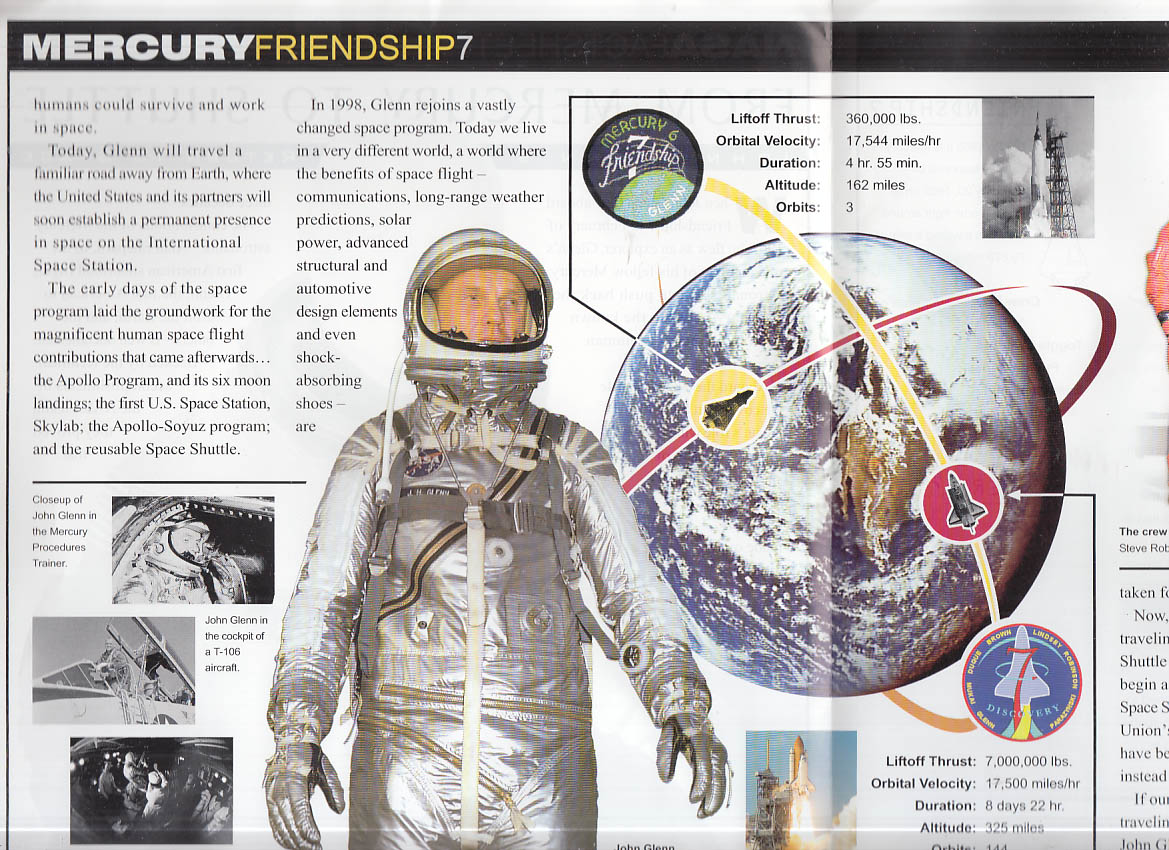
On April 9, 1959, Glenn was selected with six others to NASA's first astronaut class, which would go on to be called the Mercury 7. 20, 1962, as part of the Mercury-Atlas 6 mission. John Glenn's orbital flight When did John Glenn orbit Earth? Glenn was promoted to lieutenant colonel in 1959 and accumulated nearly 9,000 hours of flying time, with around a third of that in jets. Glenn flew nonstop from the Naval Air Station in Los Alamitos, California, to Floyd Bennett Field in New York in just 3 hours, 23 minutes. Glenn broke his first record in July 1957, when, as a project officer of the F-8U Crusader, he flew the first transcontinental flight at an average supersonic speed, according to NASA. Naval Test Pilot School in Patuxent River, Maryland, and then piloted the F-8 fighter during test flights. Later, during the Korean War, Glenn flew 90 missions, and during the final nine days of the conflict, he downed three Soviet MiG aircraft.Īccording to, Glenn was a decorated pilot who flew nearly 150 combat missions over the course of World War II and the Korean War. Marine Corps in 1943 and flew 59 missions in the South Pacific during World War II.

According to Britannica, in 1942, Glenn joined the U.S. In addition to his early scientific curiosity, Glenn developed an early sense of patriotism that would influence his decision to leave school and serve his country in the second world war. He graduated from New Concord High School in 1939 and went to Muskingum College. The family moved to New Concord, Ohio, when Glenn was 2 years old.Īccording to, Glenn began to show an interest in aeronautics at an early age. in Cambridge, Ohio, on July 18, 1921, to John and Clara Glenn. However, the record for the oldest person in space was claimed from Glenn by 82-year-old Mary Wallace ("Wally") Funk in July 2021, though Shatner broke that record a few months later.Īfter retiring from the space program, Glenn served four terms as a U.S. The record stood for 23 years, until it was claimed by 90-year-old "Star Trek" actor William Shatner in October 2021.

Glenn was still pushing the limits later in life: In October 1998, at 77 years old, he became the oldest man ever to venture into space.


 0 kommentar(er)
0 kommentar(er)
